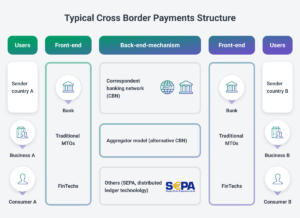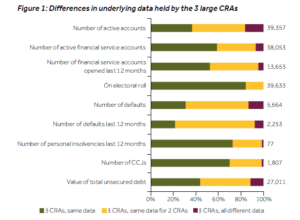
Most consumers don't know about it. Insurers don't use it. But dark data — despite its nefarious sound — could help the insurance industry face the climate crisis. So, as insurers, why haven’t we brought dark data into the light?
First, let's examine how climate change challenges the fundamental proposition of insurance: protecting those in need. U.S. coastal markets and wildfire-prone areas are becoming virtually impossible to insure. More major insurers are turning away homeowners in Florida and California as a result.
To be fair, we’re operating in a blind spot. Everything insurers knew to be true about weather patterns and mortality no longer applies. Stronger, more frequent storms and catastrophes defy precedent and all historic data. This unpredictability is why consumers are seeing their homeowner’s insurance premiums rise. Insurers have had raise prices to remain afloat amid massive loss.
The Insurance Information Institute named 2022 the worst year in more than a decade for property and casualty (P&C) insurance. Through disasters like Hurricane Ian, the US P&C industry alone bore a $26.5 billion underwriting loss, according to research by AM Best. Even the labor and cost of materials to climate-proof buildings in vulnerable areas have skyrocketed, necessitating even greater premium hikes.
Climate change is coming for life insurance, too. The World Health Organization calls climate change "the biggest health threat facing humanity" due to increasing deaths from disease, heat and malnutrition. Marginalized populations are most likely to suffer these health impacts. Per the National Library of Medicine, “Climatic changes linked to global warming are having a disproportionate effect on the health of adults and children of color." That's going to escalate life insurance rates.
It's a nasty conundrum. To stay afloat, insurers will be forced to keep raising premiums until they price out their customers. People will suffer. The situation is dire.
As a father of young children, watching footage of wildfires ravaging North America, the role of my industry in the climate crisis crowds my thoughts. Insurers are overlooking a resource in the climate crisis most consumers don't know exists. It's called dark data.
Dark data is simply consumer data that organizations collect but don't use. It has a carbon footprint. In the insurance industry especially, it collects in servers like trash heaping in landfills. The insights from dark data aren’t held against you; insurers don't factor it into premium pricing. Often, insurers don't store it in a way even they can easily access.
Much of it comes from your smart devices. An example: the driving insurance app you use collects data on your braking and how fast you drive at night to offer you discounts for your safe driving. What you may not know: it also registers how often you look at your phone while you drive.
With sensors on every building and smartphones, smart watches and smart homes emitting signals, there are reams of potential climate data at our disposal. We only end up using a fraction of it.
How bad is this underusage? Experts estimate that the data utilization rate for some carriers is at an abysmal 12%.
Consumers should be able to opt in or opt out of this data collection. Transparency and data privacy is a massive ethical issue we must address.
Delving into dark data is also an economic proposition for insurers. Collecting and storing what we don’t use strains already limited resources, ultimately racking rates up for consumers even higher.
Most of all, it's a tremendous waste, a treasure trove we could use to price as fairly and accurately as possible. Making pivotal decisions with a fraction of the available information is irresponsible.
So how can insurance proceed as an industry?
First, we must implement authentic and transparent environmental, social and governance strategies. With clear guidance, individuals and businesses can get serious about their own policies and help those in need. We need a way to continually evaluate data collection and use it to build momentum toward real change.
Ensuring we have the technology in place to process and use dark data is a challenge. Educating consumers about the options available to them is another. It will take the efforts of an entire industry to pivot. It may take public demand to spur meaningful action.
But the climate crisis demands we honor the principle at the heart of insurance: protecting people who are at risk. The insurance practitioners I know believe that.
In the planet's darkest hour, dark data can help us realize it.
- SEO Powered Content & PR Distribution. Get Amplified Today.
- PlatoData.Network Vertical Generative Ai. Empower Yourself. Access Here.
- PlatoAiStream. Web3 Intelligence. Knowledge Amplified. Access Here.
- PlatoESG. Carbon, CleanTech, Energy, Environment, Solar, Waste Management. Access Here.
- PlatoHealth. Biotech and Clinical Trials Intelligence. Access Here.
- Source: https://www.finextra.com/blogposting/24955/why-havent-insurers-deployed-dark-data-to-fight-the-climate-crisis?utm_medium=rssfinextra&utm_source=finextrablogs
- :has
- :is
- :not
- $UP
- 2022
- a
- Able
- About
- about IT
- access
- According
- accurately
- Action
- address
- adults
- against
- All
- alone
- already
- also
- am
- america
- Amid
- an
- and
- Another
- app
- applies
- ARE
- areas
- AS
- At
- Authentic
- available
- away
- Bad
- BE
- believe
- BEST
- Biggest
- Billion
- blind
- brought
- build
- Building
- businesses
- but
- by
- california
- called
- Calls
- CAN
- Can Get
- carriers
- catastrophes
- challenge
- challenges
- change
- Changes
- Children
- clear
- Climate
- Climate change
- climate crisis
- coastal
- collect
- Collecting
- collection
- collects
- color
- comes
- coming
- consumer
- consumer data
- Consumers
- continually
- conundrum
- Cost
- could
- crisis
- Customers
- Dark
- data
- data privacy
- deaths
- decade
- decisions
- Demand
- demands
- deployed
- Despite
- Devices
- dire
- disasters
- discounts
- Disease
- disproportionate
- don
- Dont
- drive
- driving
- due
- easily
- Economic
- educating
- effect
- efforts
- end
- Entire
- environmental
- especially
- estimate
- Ether (ETH)
- ethical
- evaluate
- Even
- Every
- everything
- examine
- example
- exists
- experts
- Face
- facing
- factor
- fair
- fairly
- FAST
- fight
- Finextra
- florida
- For
- For Consumers
- fraction
- frequent
- from
- FT
- fundamental
- get
- Global
- global warming
- going
- governance
- greater
- guidance
- had
- Have
- having
- Health
- Heart
- Held
- help
- higher
- Hikes
- historic
- Homes
- hour
- How
- HTTPS
- Humanity
- hurricane
- i
- Impacts
- implement
- impossible
- in
- increasing
- individuals
- industry
- information
- insights
- Institute
- insurance
- insurance industry
- insurers
- into
- issue
- IT
- ITS
- jpg
- Keep
- Know
- labor
- let
- Library
- Life
- light
- like
- likely
- Limited
- linked
- longer
- Look
- loss
- major
- Making
- Markets
- massive
- materials
- May..
- meaningful
- medicine
- Momentum
- more
- most
- must
- my
- Named
- National
- Nature
- Need
- night
- no
- North
- north america
- of
- offer
- often
- on
- only
- operating
- Options
- or
- organization
- organizations
- our
- out
- own
- patterns
- People
- per
- phone
- Pivot
- pivotal
- Place
- planet
- plato
- Plato Data Intelligence
- PlatoData
- policies
- populations
- possible
- potential
- Precedent
- Premium
- price
- Prices
- pricing
- principle
- privacy
- proceed
- process
- property
- proposition
- protecting
- public
- raise
- raising
- Rate
- Rates
- real
- realize
- registers
- remain
- research
- resource
- Resources
- result
- Rise
- Risk
- Role
- s
- safe
- seeing
- sensors
- serious
- should
- signals
- simply
- situation
- smart
- smartphones
- So
- Social
- some
- Sound
- Spot
- stay
- store
- storms
- Strains
- strategies
- stronger
- T
- Take
- Technology
- than
- that
- The
- the world
- their
- Them
- There.
- These
- they
- this
- those
- threat
- Through
- to
- too
- toward
- Transparency
- transparent
- tremendous
- true
- Turning
- u.s.
- Ultimately
- underwriting
- until
- us
- use
- using
- Vulnerable
- Waste
- watches
- watching
- Way..
- we
- Weather
- weather patterns
- What
- while
- WHO
- why
- will
- with
- world
- World Health Organization
- Worst
- year
- you
- young
- Your
- zephyrnet










